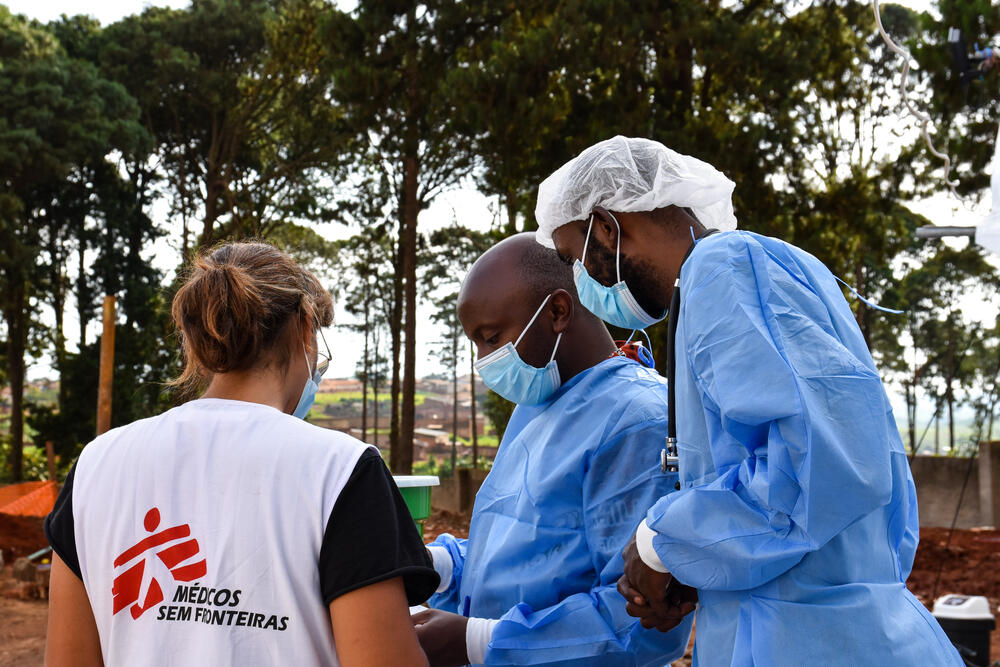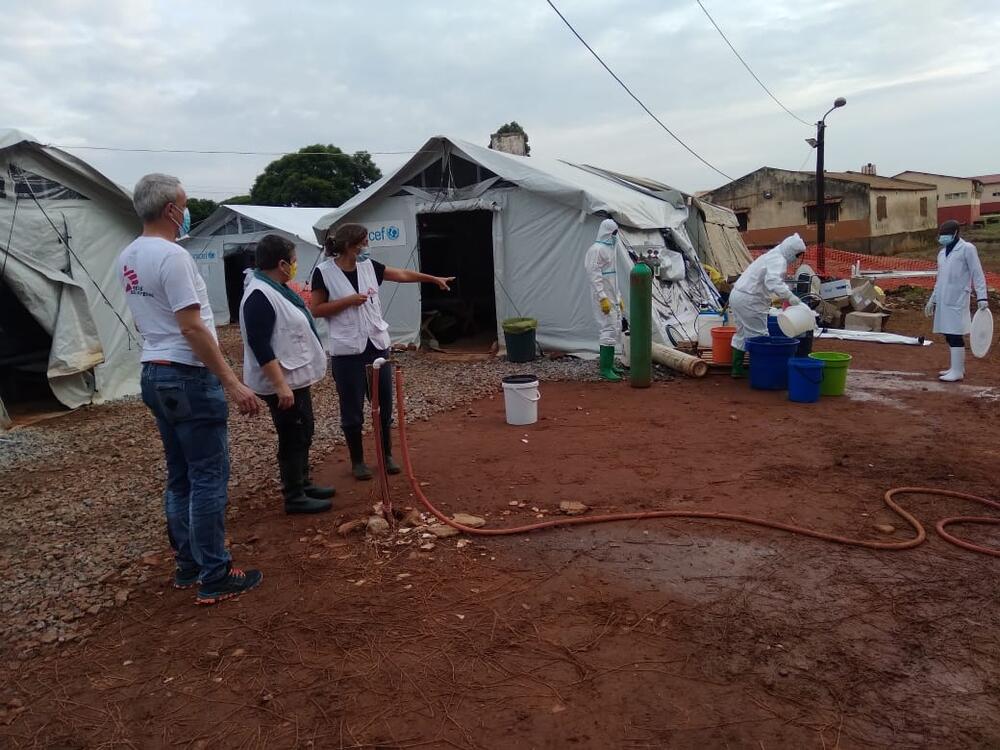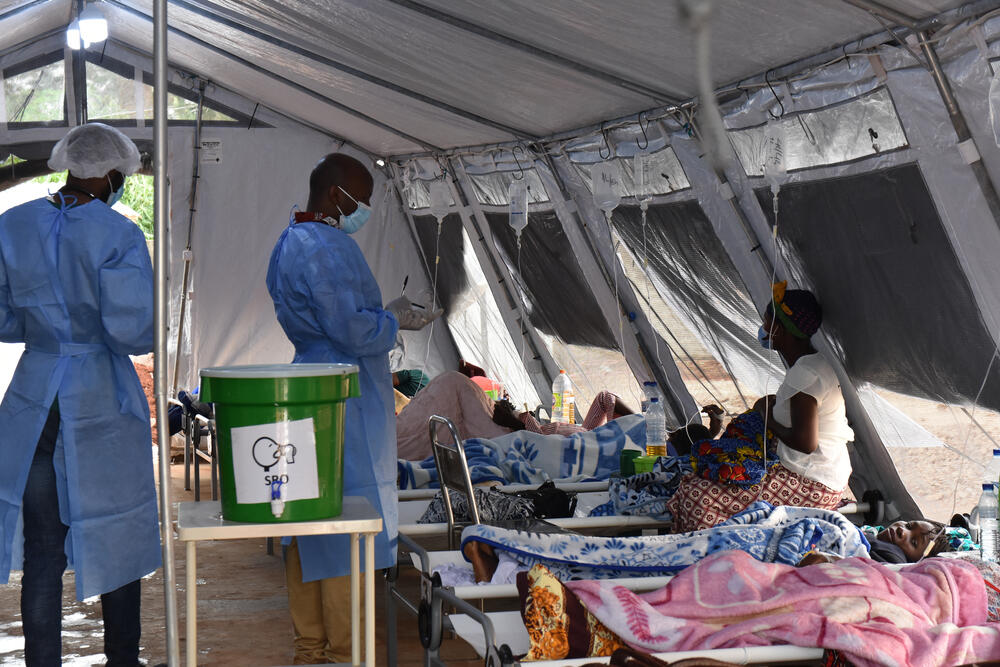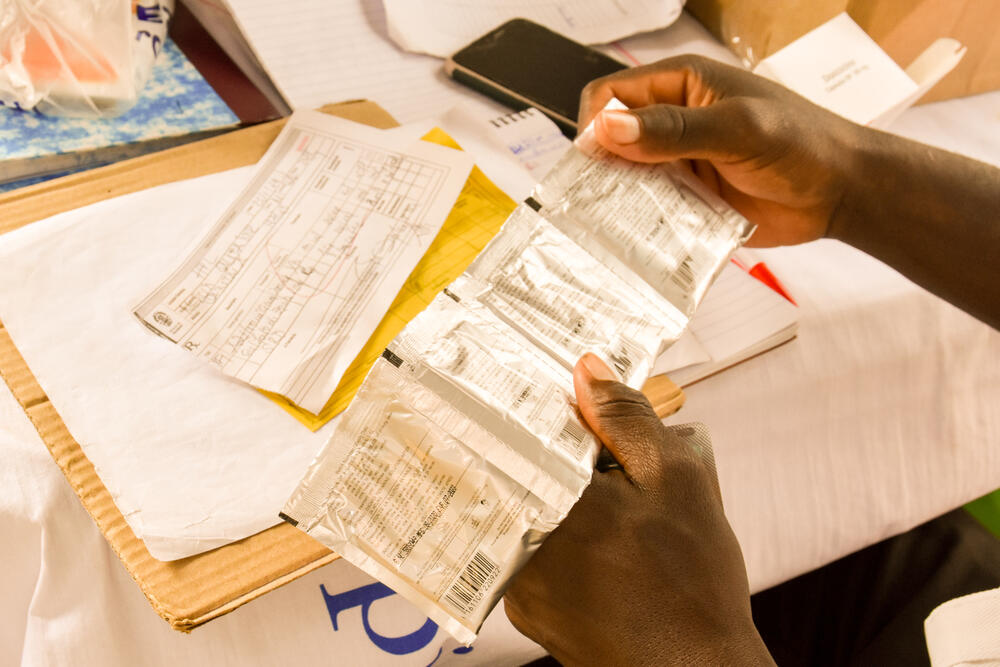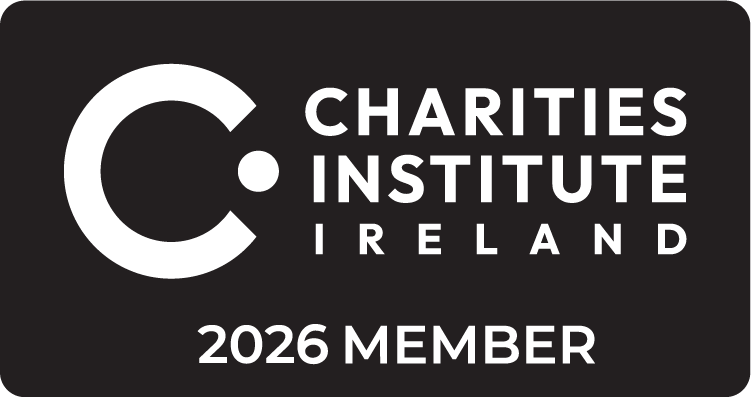Mozambique: MSF helps contain cholera cases after surge in country’s north
31 January 2023
Since September 2022, Mozambique has been registering a worrying increase in the number of cholera cases, particularly in the northern province of Niassa. In response, Médecins Sans Frontières/Doctors Without Borders (MSF) is supporting the Mozambican Ministry of Health in providing treatment to people, reducing mortality and helping control the spread of the disease.
In Niassa, according to the Ministry of Health, more than 1,400 cases and 13 deaths have been reported between mid-September 2022 and January 2023 in the five affected districts: Lichinga – where the provincial capital is located – Lago, Mecanhelas, Mandimba and Sanga.
MSF teams are working on increasing the capacity of Lichinga Provincial Hospital’s existing Cholera Treatment Centre (CTC) to 50 beds. Our teams have also supported the installation of a CTC in Meponda, a town near the provincial capital. We are also reinforcing health promotion messages, carrying out hygiene product distributions and donations, conducting training for health professionals on treatment, as well as increasing infection prevention and control (IPC) measures.
“The occupancy rate in the CTC in Lichinga Hospital these past weeks has always been above 15 beds and we have had up to 50 patients admitted”, says Sara Miro, MSF medical coordinator. “However, we are seeing less patients die over the last days.”
MSF teams are also working on a community-based strategy to reinforce hygiene measures and detect people with suspected cases of diarrhoea at an early stage.
“In order to reach more people, our teams are working with existing local community groups and committees, visiting areas that have reported a high number of cases and set up tents to treat patients in Lichinga town”, says Miro. MSF is responding in other parts of the country as well.
In the province of Nampula, as part of an emergency preparedness measure, we are pre-emptively helping set up a 25-bed CTC in Angoche district. In the country’s capital, Maputo, MSF has trained local health professionals on IPC measures.
At the national level, we have donated to the Mozambican Ministry of Health medical items, such as patient rehydration drugs, over 24,000 bottles of a water purifying solution, and 1,500 tablets of chlorine, to be used mostly in the provinces of Niassa, Zambezia and Sofala, where cases have also been reported.
In addition, we are reinforcing training and IPC measures throughout MSF projects in Cabo Delgado, Sofala and Nampula provinces.
MSF teams continue to monitor the situation and remain reactive to epidemiological trends and medical humanitarian needs in the country, especially as the rainy season continues.
MSF has been working in Mozambique since 1984 and for more than 30 years has responded to medical and humanitarian needs countrywide.
Cholera is endemic in Mozambique. It is highly contagious and occurs in settings without clean water and proper sanitation. It causes profuse diarrhea and vomiting, and without treatment can quickly lead to death by intense dehydration. MSF has a long history responding to cholera-related needs alongside local authorities in Mozambique; Here are a few examples:
♦ 1993-2000: Various responses to outbreaks throughout Mozambique’s reconstruction period after the civil war.
♦ 2004: A vaccination campaign in Beira.
♦ 2015: Epidemiological and treatment support in Niassa.
♦ 2017: Outbreak response and a reactive vaccination campaign in Tete, reaching 297,000 people.
♦ 2019: Outbreak response in Beira following the vast destruction caused by cyclone Idai.
